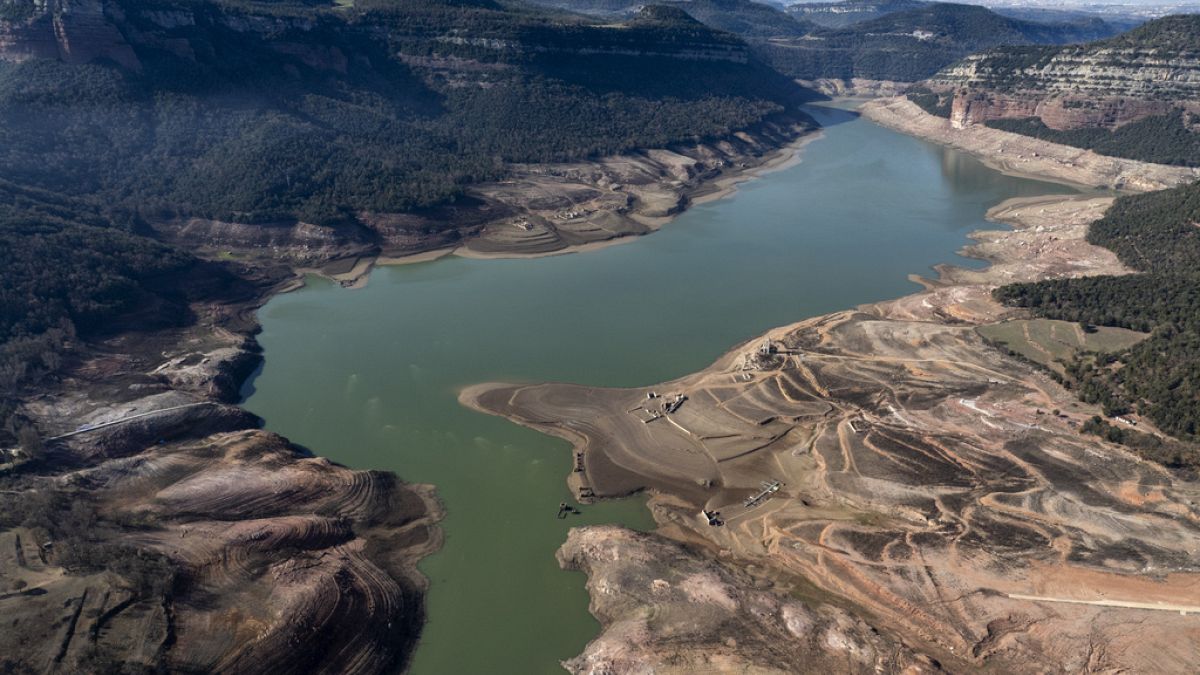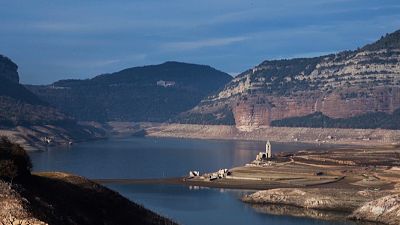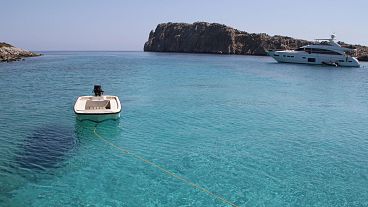Critics say unusual solutions doen't solve long-term water management problems.
Catalonia is experiencing one of the worst droughts in living memory. At no point in the last century have water shortages been so severe.
The reservoirs that supply most of the region, including Barcelona, are at an all-time low - less than 16 per cent of capacity.
The dire situation has led authorities to declare a state of emergency. They have introduced a series of restrictions on water use including a ban on filling hotel swimming pools, restricting the irrigation of green areas and reducing consumption by the rural sector.
Water cuts in Barcelona would be a 'tragedy'
To make up for extreme shortages, the Spanish government is planning to ship desalinated water to Catalonia.
This joint plan between the Ministry of Ecological Transition and the Regional Ministry of Climate Emergency of the Valencian Community would bring desalinated water by boat from the port of Sagunto just north of Valencia.
Minister for Ecological Transition Teresa Ribera says this is the "simplest, clearest and most prepared option, both technically and administratively".
She recognises, however, that it is an "exceptional solution".
Carlos Manzón, President of the Valencian Community, made his solidarity with his Catalan neighbours clear but did criticise the Government of Catalonia for not helping Valencia in the past.
"We are not going to deny water to those who denied it to us," Manzón said.
Catalan Climate Action Minister David Mascort also told public broadcaster TV3 that, in his view, it wasn't a viable solution to the chronic drought issues the region is facing. He said that authorities instead needed to find "structural" solutions to the problem.
Shipping in water is 'unsustainable'
Environmentalists also believe that current water restrictions are insufficient.
Head of water for Greenpeace Spain, Julio Barea, told Spanish news network RTVE that the limitations "are going to have to be much more restrictive if it doesn't end up raining".
Barea added that without stronger measures, there could be "water cuts in Barcelona, which would be a tragedy".
Greenpeace has also criticised the Government of Catalonia, claiming that water has been mismanaged.
The environmental organisation recognises that action must be taken, but believes that "these are patches that cannot be implemented in the long term because bringing ships from elsewhere is unsustainable," says Julio Barea.
Bringing desalinated water by boat to Barcelona will only cover 2 per cent of the water consumption of the citizens of the metropolitan area every day. Greenpeace says this makes it an insufficient and expensive measure.
According to the organisation, the root of the problem lies in agriculture and livestock farming. This is a sector that consumes a large amount of water due to the use of intensive irrigation.
"We can save water at home, but domestic consumption does not account for most of it," says Barea.
Criticism of water management by municipalities
In addition to the use of water by the agricultural sector, several social and neighbourhood groups in Catalonia have criticised the management of water by local councils.
These administrations are responsible for water supply and sewerage at the municipal level.
Many municipalities in Catalonia do not even have a drought plan. Those urban centres with more than 20,000 inhabitants should have one, but only one in 4 has put one in place.
The region is also one of the most privately managed in the world with 78 per cent of the population supplied by private companies.
Climate shelters for a summer of extremes
Catalonia has also started preparing for the possibility of a scorching hot summer. The government has begun updating a list of officially registered climate shelters.
This could include allowing the filling of swimming pools in the autonomous Spanish region - only if they double as a registered climate shelter that provides respite from the extreme heat of summer.
Mascort said that under these circumstances the restrictions could be relaxed but "under normal circumstances, no".



